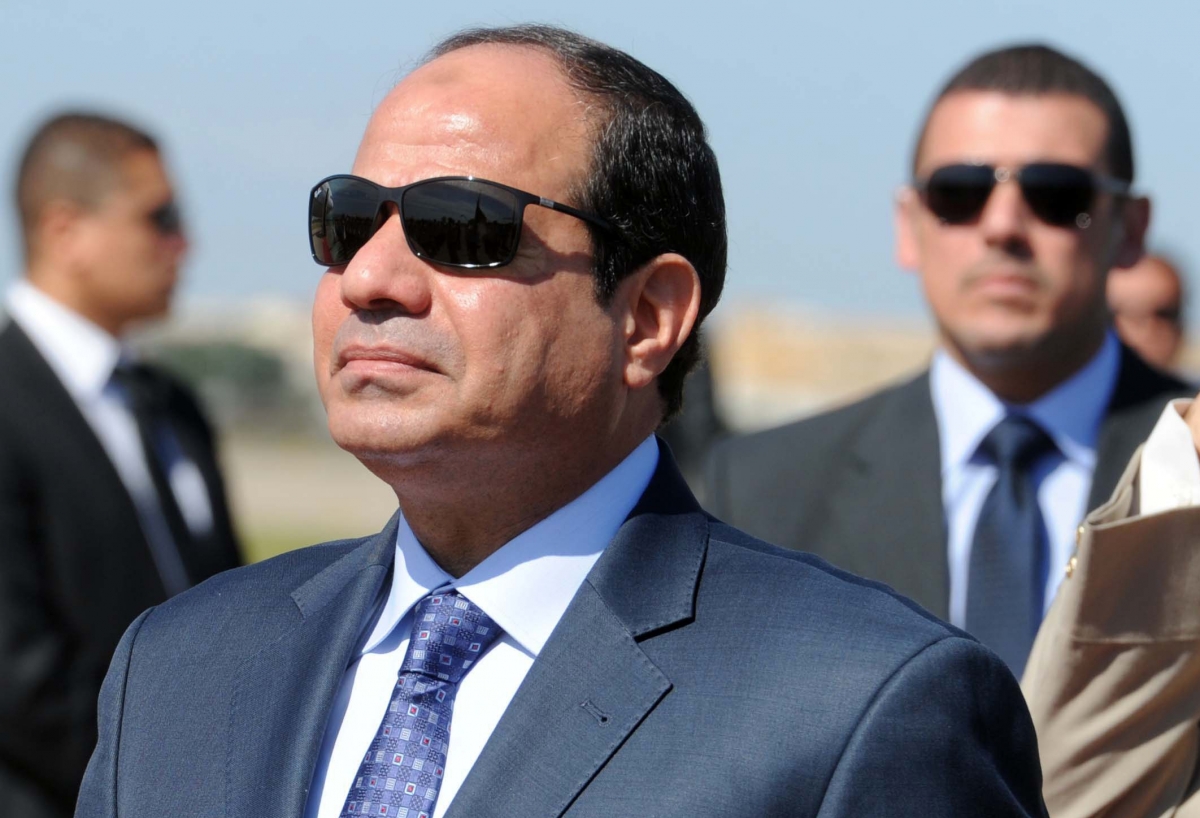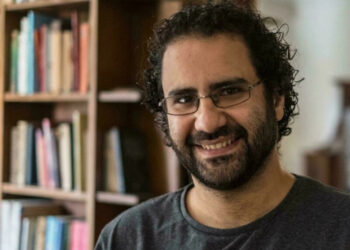Earlier this month, Egypt’s parliament approved a series of constitutional changes that openly mark the country’s descent into institutionalized authoritarianism. While it includes some relatively “innovative” changes, such as a suggested 25 percent quota for female representation and the creation of both a vice-presidential post and a new parliamentary upper house, these are not the reason why the regime wants to move forward with it.
Rather, the bill embodies President Abdel Fattah al-Sisi’s rush to secure extrajudicial powers in a bid to stabilize his faltering legitimacy. The proposed amendments would extend presidential terms from four to six years, and allow Sisi to run for elections twice more after his current term finishes in 2022. To put things into perspective, this means that Sisi could stay in power until at least 2034 when he is 80 years old.
Check out a breakdown of the constitutional amendments that were submitted to Parliament earlier this week and would allow President Abdel Fattah al-Sisi to run for office until 2034. pic.twitter.com/LhgQ5Ajkwy
— Mada Masr مدى مصر (@MadaMasr) February 5, 2019
The amendments would also grant the president further control of the state’s institutions, particularly the judiciary apparatus. They allow him to appoint the head of judicial bodies like the Constitutional Court and prosecutor general. Simultaneously, Sisi would also establish a Supreme Judiciary Council that he would head for life, regardless of whether he maintains his presidential post or not.
Even more worryingly, the bill declares the armed forces the “guardian and protector” of the Egyptian state, guaranteeing a lasting political role for the military within the country’s institutions. Even though this was met with a backlash from dissidents abroad, Sisi’s supporters have been calling for these amendments for months, claiming that this is a necessary move as “two four-year terms are not enough for Sisi to fulfill his vision of a modernizing country.”
Sisi: Dictator for Life?
Sisi’s turn from an authoritarian ruler into a de facto dictator for life is not an unprecedented move in Egyptian modern history. Many of his predecessors also relied on the seizing of extrajudicial powers to suppress popular dissent and circumvent democratic practices.

However, the intensity of the state-led repression that has enveloped Egypt since Sisi’s ascent to power through a military coup in 2013 is rather new. From then onwards, the country has fallen into a human rights crisis so deep that it seems to have no end.
Under Sisi’s iron fist, reports of police’s indiscriminate use of torture, arbitrary arrests, and enforced disappearances have become routine, as the space for political dissent has all but vanished.
The country’s civil society and NGOs, once thriving in the face of former President Hosni Mubarak’s repression, have been considerably weakened by almost five years of escalating authoritarianism. The few critics that remain out of jail have either fled abroad or remain silent under a thick climate of intimidation and fear.
Institutionalizing Authoritarianism to Secure Rule
As I have argued elsewhere, these constitutional amendments are only the latest step in al Sisi’s plan to institutionalize authoritarianism in a bid to secure his rule. A state of emergency that heavily restricts freedoms of association and assembly has been ruling over Egypt since the Alexandria and Tanta church bombings of April 2017. It has recently been renewed for the seventh consecutive time.
A controversial NGOs law effectively prevents NGOs and charity organizations from operating, leaving the most deprived parts of the population to fend off for themselves.
Counterterrorism legislation is being used to conduct mass arrests of journalists, activists, and state critics, and to justify the sentencing of civilians by military courts. All in all, extrajudicial measures seem to have become a proper paradigm of rule.
Vulnerable Regime
However, I would argue that they also reveal just how vulnerable the regime actually is. So far, Sisi’s repressive rule has failed to generate the loyalty that his predecessors could rely on, and he is undoubtedly feeling the pressure of trying to hold onto power in a country that grows more ungovernable by the day.
After all, a confident autocrat would not ban the sales of yellow high visibility jackets in fear of its citizens possibly taking inspiration from the French gilet jaunes protest movement. Neither would the regime extend the domestic crackdown on journalists to renowned international analysts and reporters, such as veteran New York Times reporter David Kirkpatrick, who a few days ago was denied entry after being detained in Cairo International Airport for over seven hours.
If anything, the recently passed bill is Sisi’s latest attempt to remove all checks and scrutiny from his rule.
Backlash
Before being officially implemented, the proposed constitutional amendments will have to go through a popular referendum, but this provides little reassurance for Sisi’s critics in Egypt and abroad.
Nevertheless, Sisi’s poor governance is not going unnoticed in international circles, and neither is his failure to tackle domestic terrorism and rising extreme poverty levels.
While it is highly unlikely that Egypt’s international allies like the United States will speak out about rising authoritarianism, removing all limits from Sisi’s power and tenure increases the possibility that the nation might eventually rebel, just like it did against Mubarak after 30 years of similarly despotic rule.
Disclaimer: The views and opinions expressed here are those of the author and do not necessarily reflect the editorial position of The Globe Post.





















